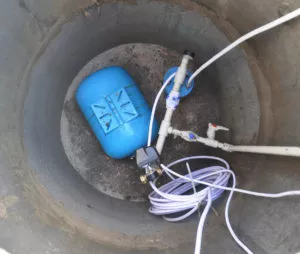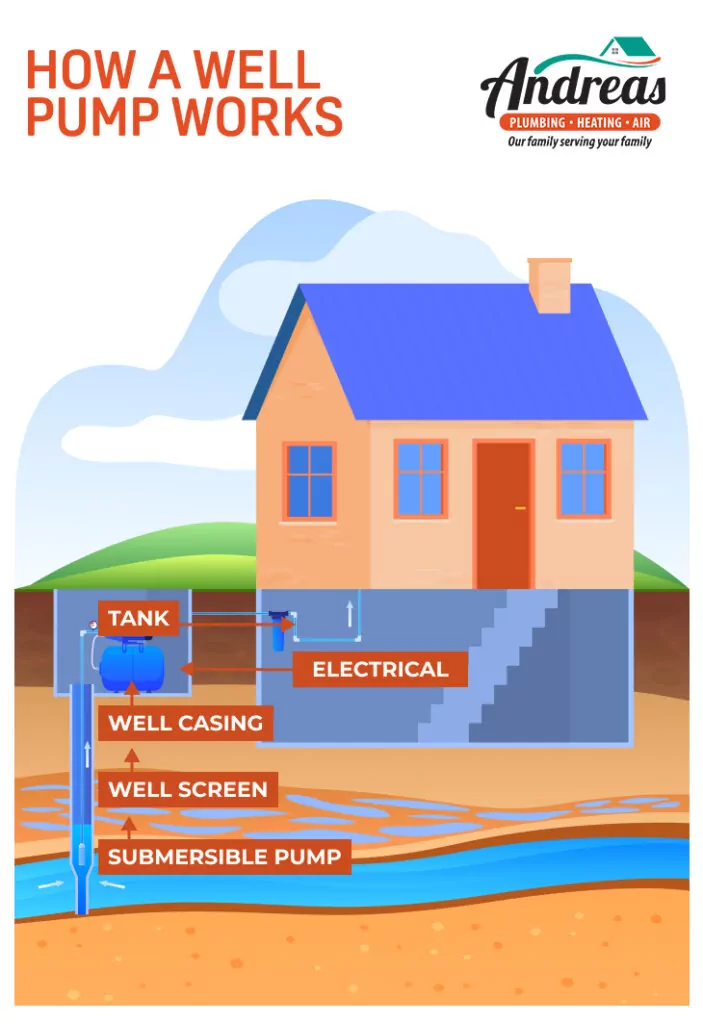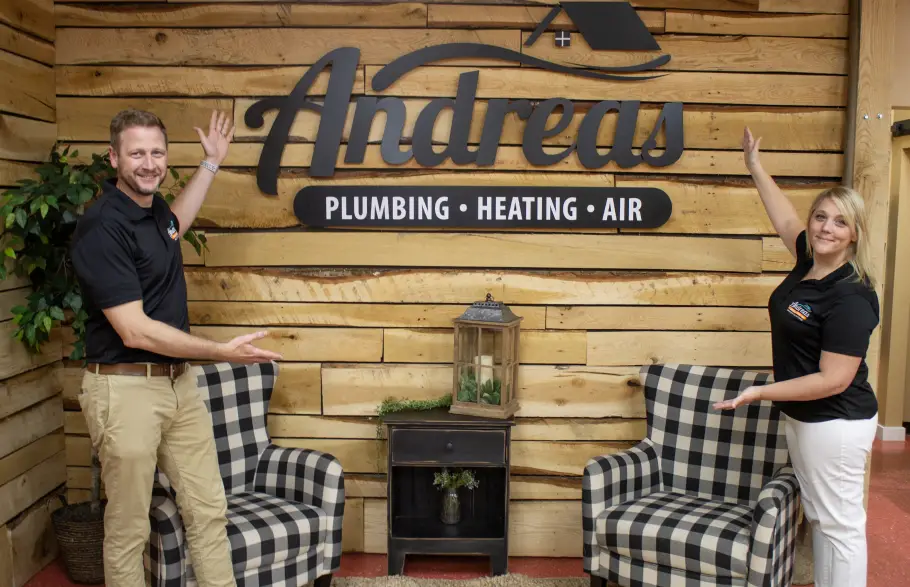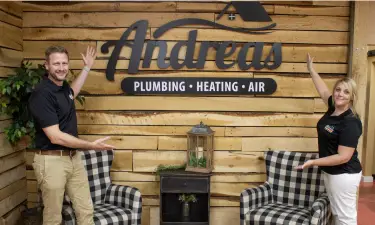Well pumps are an affordable and cost-effective clean water source for homeowners and businesses. Well pumps can also improve home value and run just as efficiently as city water.
A high-quality well pump provides fresher, cleaner water than the city while offering the independence of a private water source. But how does it work?
Jet vs. Submersible Well Pump
There are several types of well pumps, with jet pumps and submersible pumps being the most common in the Lehigh Valley. Jet well pumps are installed above ground and rely on a motor connected to a suction pipe that pulls water up to ground level and into your home or business.
Conversely, submersible well pumps are positioned below ground and use pressurized water to push water to ground level, where it can flow directly through your taps or into a storage tank.
Jet and submersible pumps are typically installed in deeper wells. For shallow wells, centrifugal or hand pumps are more common. These pumps are positioned above ground and use a suction pipe to draw water from the ground, much like drinking from a straw.
How Well Water Is Pumped to Your Home
The water from your taps goes through a long, arduous journey to reach your home. It starts deep below the surface in one of the area’s many aquifers. Your water well is drilled into the aquifer, and a pipe is installed and connected to your well pump system. Most wells in the region are between 100 and 200 feet deep and roughly 6 inches in diameter.
The system consists of a well pump, water softener, water purifier, and pressure tank. These three components work together to pull water from the well, clean and purify, pressurize, and store it for ease of use. If you have a submersible pump, it will be placed at the bottom of the well. Jet pumps, hand pumps, and centrifugal pumps will be positioned on the surface near the top of the well.
The pressure tank is a miniature reservoir that’s dispersed when you turn on your faucet or flush the toilet. When the pressure in the pressure tank drops below a preset level, it signals the well pump to refill it. The process ensures you always have sufficient water without operating your well pump every time you pour a glass of water.
While some well pumps are powerful enough to remove the water from the well and pump it through your home, other pumps require a booster pump. A booster pump installed within a storage tank can significantly improve the flow rate through your taps if the well is a considerable distance from the home or multi-story home.
Schedule Well Pump Installation
Team Andreas’ plumbers have extensive experience installing and repairing well pumps in Lehigh Valley and Monroe County. We offer reliable HVAC and plumbing solutions to ensure your home systems are always working at optimal performance.
Andreas Plumbing, Heating & Air Conditioning is a family-owned and -operated company you can count on for:
- 24/7 emergency service
- Financing options
- Coupons & specials
- Service plan
- Background-checked technicians
Contact Andreas Plumbing, Heating & Air Conditioning at (610) 377-5261 to schedule well pump installation in the Lehigh Valley.





